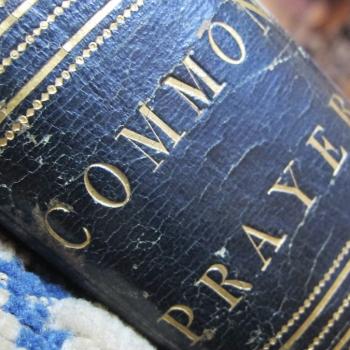When my old, usually reliable car is giving me trouble, there’s only one person I will trust with it. His name is Juan Marquez, and he’s the septuagenarian owner of Gulf Freeway Auto Service. His place is not easy to find among the rows of nondescript light industrial sheet metal buildings in South Houston, Texas, but as long as he’s in business, I will find Juan. He’s a hardworking, self-employed family man who is as honest, fair, and reliable as auto mechanics come.
He also keeps a bottle of patron tequila, some good stuff, under the counter in his office, and if you just happen to get there about closing time, which can be anywhere between 6pm and midnight, he’ll gladly share a drop or two. And if you’re doubly lucky, he will entertain you with stories of life in his native Venezuela, and show you old, yellowed photos of a much younger man proudly sporting his Fiat jumpsuit. He’s not a bragger, just a friendly fellow who loves conversation about life. And after a decade of hearing Juan’s stories, the pieces fall together, and you understand that he’s not just faking it; his résumé is impeccable. Juan knows his cars. He is doing something he was born to do.
I have no trouble admitting that I am the wrong person to ask for car advice. I can take care of minor maintenance and I know most of the warning signs, but once the job requires more than a hex key or some fluid, I’m helpless. I am clearly the wrong person for the job. I need Juan Marquez in my life.
I’ve been a bit surprised at the criticism of my recent post on why it’s better to sing hymns than contemporary worship songs. More specifically, I’m surprised about the amount of criticism I’ve received over point number 2, “Hymns are usually written by the right people.” A number of people were particularly offended by this, and told me so with varying amounts of good manners in place. This is what someone named Jerry said:
“The assertion that hymns are written by the “right people” is so painful, it truly hurts. I am hard-pressed to find the Bible’s guidelines as to who is eligible to write worship music. I hope you don’t really believe that, but maybe you do.”
I never want to hurt anyone, but I can’t escape the plain truth here. It’s perplexing that the point need be contentious. In almost any sphere of society, sources matter. Most states require certified teachers be highly qualified in their content area. One can not simply decide he’d like to be a lawyer and start doling out legal counsel. And if I’m ever faced with a battle against cancer, I want an oncologist with a decent amount of prior preparation.
For whatever reason, corporate worship is different. There is an overriding opinion that when it comes to music for worship, everything is of equal worth and validity. That’s simply not true. We are not affirming the efforts of second grade Sunday School students in a creative activity. The worth of the gospel isn’t measured in its psychological effect on people, and neither should the way it’s proclaimed in worship. When we are talking about words we use in our corporate prayer, we have the duty to be careful. Most Christian denominations have (supposedly) strict requirements about the path to ordination partially because worship is the the essence of ecclesial life, the darkroom of Christian ethics. We should expect similar levels of preparation for those who craft poetry for the church to sing.
Frankly, the fact that the worship industry cares more about marketable sound than theological and poetic quality is proof that it doesn’t really care about the church.
And this is why commercial “worship” music continues to get stupider and stupider.
To be sure, there are some trying to write texts with some decent theology, and a tiny fraction who try to write decent poetry. But it’s certainly not the norm. The people writing the texts that the megachurches sing, or more accurately the texts they consume, are not the right people for the job. That’s not a slight against them, either. It doesn’t mean they’re bad, untalented, worthless people. It’s just that, by and large, they don’t possess the theological rigor and textual awareness to write liturgically appropriate texts, or to understand the proper function of music in worship.
For instance, let’s do some comparison using a representative sample from both groups. The left column below lists the 13 most enduring hymns according to a study by Robert Coote. The right column is CCLI’s list of the top 13 commercial “worship” songs as of 2014. Writers are in parenthesis.
| Hymns | Date | Commercial Songs | Date |
| Abide with me (Lyte) | 1847 | 10,000 Reasons (Myrin, Redman) | 2012 |
| All hail the power of Jesus’ name (Perronet) | 1779 | Our God (Tomlin, Reeves, Myrin, Redman) | 2010 |
| Come, ye thankful people, come (Alford) | 1844 | One Thing Remains (Johnson, Gifford, Riddle) | 2010 |
| Crown him with many crowns (Bridges, Thring) | 1851 | Forever Reign (Ingram, Morgan) | 2010 |
| Glorious things of thee are spoken (Newton) | 1779 | How Great Is Our God (Tomlin, Cash, Reeves) | 2004 |
| Guide me, O thou great Jehovah (Williams) | 1745 | Cornerstone (Mote, Liljero, Myrin, Morgan, Bradbury) | 2012 |
| Holy, holy, holy! (Heber) | 1826 | Mighty To Save (Fielding, Morgan) | 2006 |
| How firm a foundation (K) | 1787 | Lord I Need You (Nockels, Carson, Reeves, Stanfill, Maher) | 2011 |
| In the cross of Christ I glory (Bowring) | 1825 | Revelation Song (Riddle) | 2006 |
| Jesus shall reign where’er the sun (Watts) | 1719 | Oceans (Houston, Crocker, Ligthelm) | 2013 |
| Love divine, all loves excelling (Wesley) | 1747 | Blessed Be Your Name (Redman, Redman) | 2002 |
| O sacred Head, now wounded (Bernard of Clairvaux) | 12th C | Amazing Grace (My Chains Are Gone) (Tomlin, Newton, Giglio) | 2006 |
| When I survey the wondrous cross (Watts) | 1707 | Here I Am To Worship (Hughes) | 2001 |
Hymn-writers
Henry Francis Lyte: Anglican clergy, student of English poetry and literature, also spoke Latin, Greek, and French, built an impressive library of theology and Old English poetry.
Edward Perronet: Pastor, author, poet, one-time associate of John and Charles Wesley.
Henry Alford: Preacher, scholar, Cambridge lecturer, theologian, translator, textual critic, author, poet. Works include English translation of the Odyssey, editor of the 8 volume New Testament in Greek.
Matthew Bridges: Prolific Anglican poet, later Roman Catholic.
Godfrey Thring: Anglican clergyman.
John Newton: Anglican Priest, Doctor of Divinity, author, poet.
William Williams: Poet, author, scholar, Methodist clergy.
Reginald Heber: Anglican bishop, Oxford grad, author, award-winning poet.
Robert Keene: Possible writer of “How Firm a Foundation,” church singing leader.
John Bowring: Author, poet, linguist, literary translator.
Isaac Watts: English Congregational minister, poet, author, theologian, logician.
Charles Wesley: Oxford-educated, leader of Methodist movement, preacher, orator, prolific poet.
Bernard of Clairvaux: Abbot and Doctor of the Church, monk, papal advisor, preacher, arbitrator, scholar, theologian, canonized 1174.
This is a pretty impressive list of qualifications. The only weak links would be (maybe) Keene, whose authorship is not certain, and John Bowring, a fine linguist, but a dedicated Unitarian.
Commercial “Worship” Songwriters
Now let’s take a look at how the commercial “worship” songwriters compare. There are more of them, because apparently it takes many commercial songwriters to change a light bulb.
Jonas Myrin: Commercial singer/songwriter, cites Stevie Wonder and Donny Hathaway as major musical influences.
Matt Redman: Commercial singer/songwriter, church lead musician.
Beth Redman: Commercial songwriter, Matt’s wife.
Chris Tomlin (aka Thris Comlin): Commercial singer/songwriter, church lead musician, self-taught guitarist, learned by strumming along with Willie Nelson records.
Ed Cash: Commercial record producer, songwriter, was investigated by Christianity Today for allegedly using his album sales to fund a fringe Christian cult.
Eric Liljero: Lead musician at Hillsong Stockholm.
Reuben Morgan: Commercial songwriter, lead musician at Hillsong UK.
Ben Fielding: Commercial songwriter, lead musician at Hillsong, holds law degree.
Christy Nockels: Commercial singer/songwriter, church lead musician.
Daniel Carson: Staff guitarist for Thris Comlin, father also played guitar.
Jesse Reeves: Commercial songwriter, lead musician at Austin Stone Community Church.
Kristian Stanfill: Commercial singer/songwriter, lead musician at Passion City Church.
Matt Maher: Commercial singer/songwriter, church lead musician, holds music degree.
Jennie Lee Riddle: Commercial songwriter, speaker, mentor to aspiring “worship leaders,” church lead musician.
Joel Houston: Commercial singer/songwriter, church lead musician, Hillsong Creative Director, offspring of Hillsong Pastor Brian Houston.
Matt Crocker: Commercial songwriter, Hillsong staff musician.
Salomon Ligthelm: Self-described “freak of creative nature,” member of Hillsong film team, claims to be passionate about storytelling, photography, cinematography, motion and design graphics, editing, music composing and sound design.
Louie Giglio: Pastor of Passion City Church, holds degrees in divinity and theology, conference leader, best-selling author.
Tim Hughes: Commercial singer/songwriter, church lead musician, ordained Anglican Priest in 2014.
Unavoidable Conclusions
So what do these lists tell us? Several things.
First, if you want to make money writing jesusy jams for the radio and megachurch cover bands, you should probably know Thris Comlin, or make some inroads into the Hillsong empire
Second, and more importantly, contemporary pseudo-liturgy is being designed by people with no formal training in theology, church history, liturgy, hermeneutics, literature, or anything else that prepares a person to write poetry that is clear, refined, elegant, and fills its liturgical function well.
Thirdly, it clearly demonstrates that commercial “worship” music is fundamentally a pop music endeavor than a liturgical or theological one.
And therein lies the problem.
Corporate worship is not a pop concert.
It’s a beautiful, intentional, disciplined reenactment of our sacred story through Word and Sacrament. And through that corporate prayer, we are shaped and molded into God’s prayer for the world around us.
People of God, words mean stuff.
In our case, our ethics and mission depend on them.
Let’s start looking in the right direction again.
Photo:
Flickr, creative commons 2.0
















